GET IN TOUCH
- Please wait...
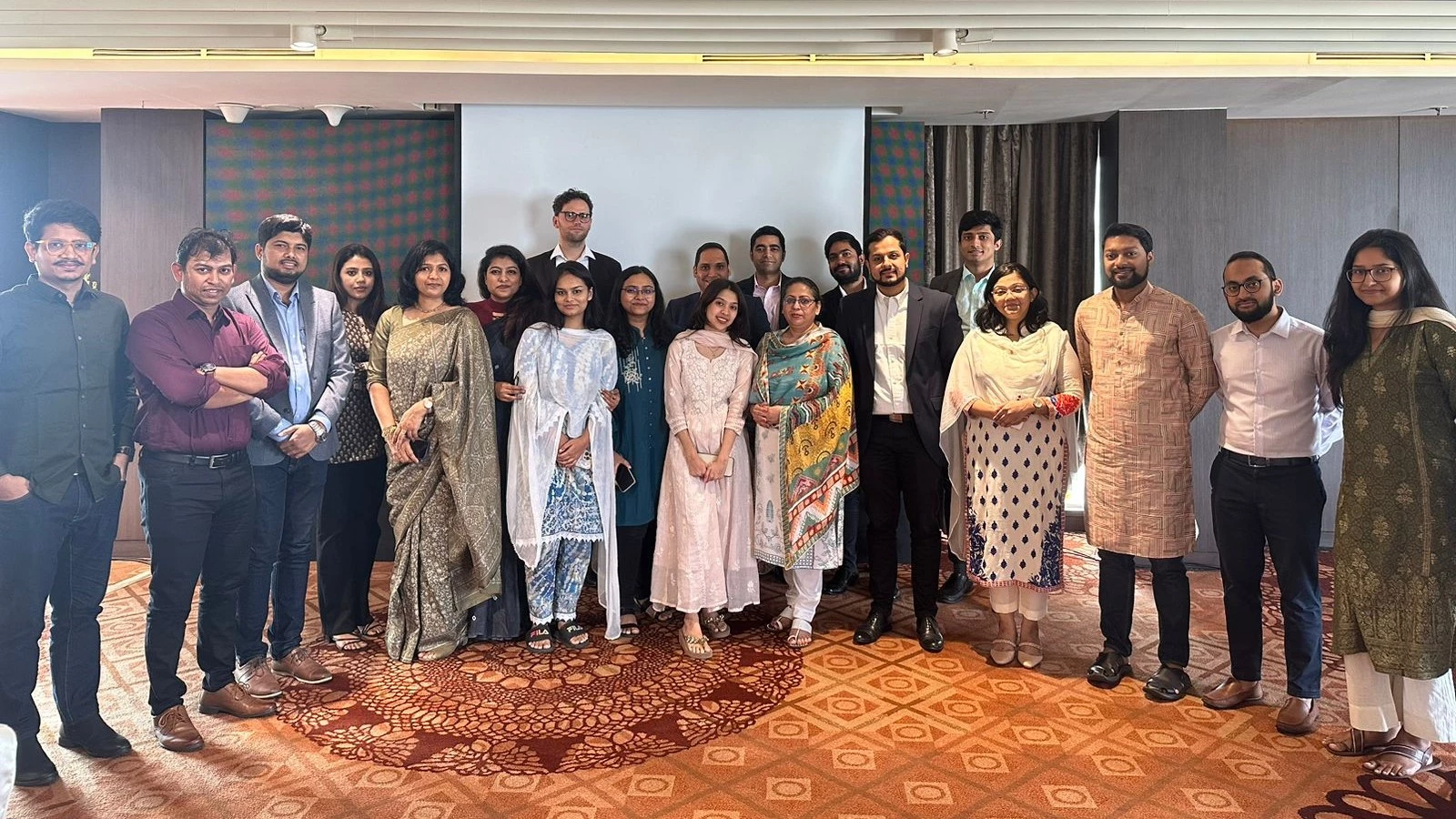
Core Project Team Members from LightCastle Partners, a2i, DevLearn, 10MS, Policy Exchange along with Jan Swillens, First Secretary Human Rights, Humanitarian Affairs and Gender, and Mushfiqua Satiar, Senior Policy Adviser – Social Sector, Embassy of the Kingdom of the Netherlands in Bangladesh
The SheSTEM Program in Bangladesh, a collaborative effort among five esteemed consortium partners—LightCastle Partners, A2i, 10MS, DevLearn, and Policy Exchange—supported by The Embassy of the Kingdom of the Netherlands, is dedicated to empowering female STEM graduates. The initiative seeks to bridge the gap between public university students and public/private businesses, fostering skills, engagement, participation, equity, and inclusion in Science, Technology, Engineering, and Mathematics (STEM) careers. The workshop provided a comprehensive overview of the SheSTEM project, with detailed discussions on each output, key considerations, and strategies to ensure the program’s success and sustainability.
The workshop was held on November 26-27 at Hotel Crowne Plaza to brainstorm solutions to empower and elevate the role of women in Science, Technology, Engineering, and Mathematics (STEM) fields. The workshop commenced with the enthusiastic participation of team members from all consortium partners. The participants were provided with a comprehensive workbook outlining the roadmap for the SheSTEM project. The sessions were structured by outputs, allowing in-depth exploration of each aspect to gather valuable input.
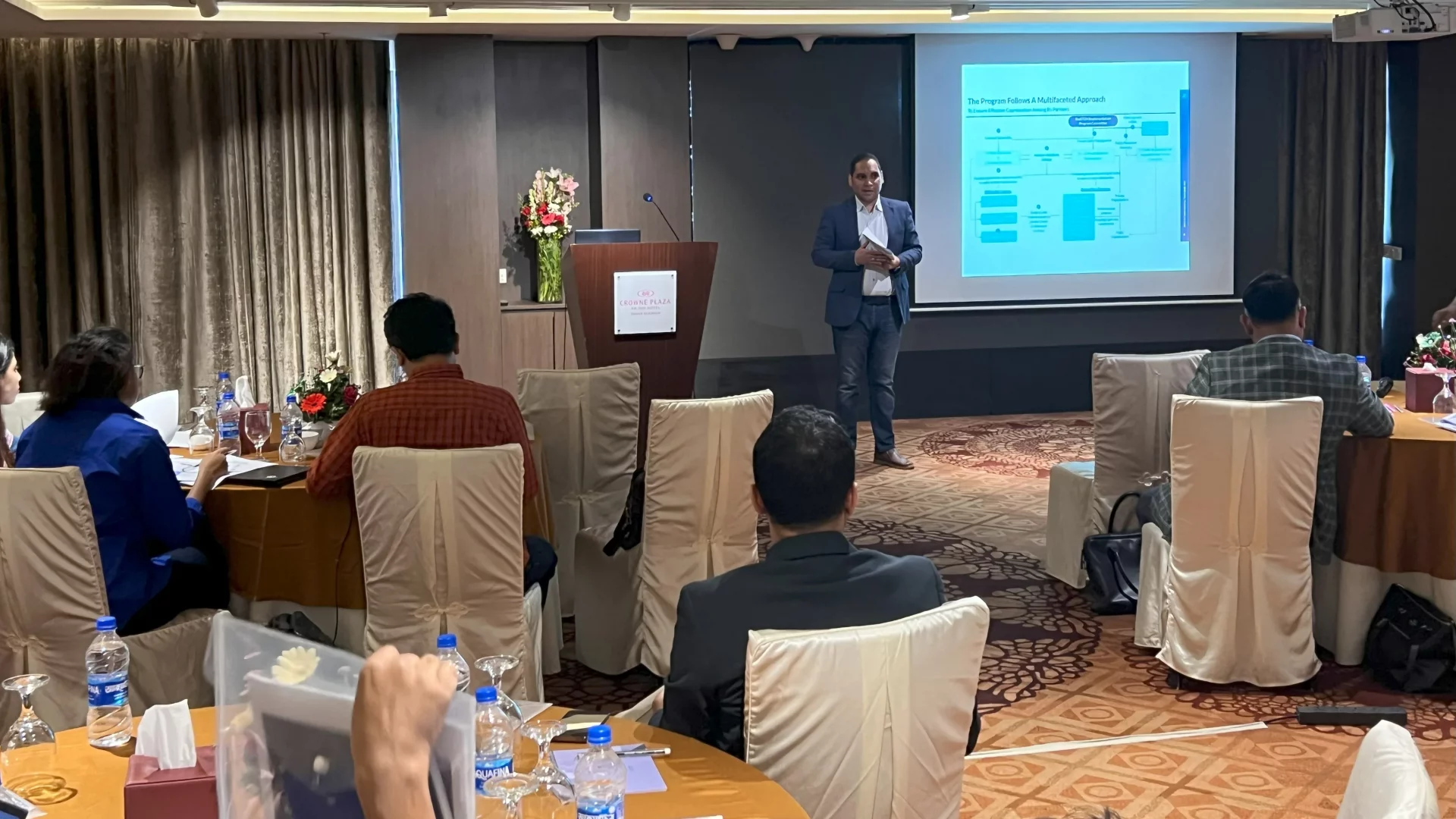
The initial focus was on developing business cases and outreach models using the social business model canvas. Participants were divided into four groups, each utilizing hypotheses to formulate potential business cases for SheSTEM. Following group discussions, each presented their findings, followed by a Q&A session.
The first roundtable discussion centered on identifying crucial stakeholders, emphasizing the need for multiple business cases tailored to different stakeholders. Further discussion led to the potential partnerships that can be formed between academia, private companies and public sector and even the government bodies.
From the business case discussions, the importance of providing tangible value to SheSTEM graduates for improved placement and employability skills became evident. Multiple business cases for private employers were also emphasized, considering the potential boost in productivity and its impact on efficiency, top line, and bottom line.

The second discussion centered around building partnerships with both public and private universities, government institutions, and other potential partners beyond those initially proposed. Ideas such as tax breaks were discussed and added to the consortium’s wishlists. The type of private organizations to collaborate with was explored, ranging from multinational corporations and local corporations to ICT companies and startups. The discussion also covered what value this program would add to each type of organization. Concerning university partnerships, the brainstorming extended beyond the identification of partner universities to exploring collaborations with specific departments, clubs, and alumni associations.
While the program primarily focuses on university students, the need to extend efforts to the school level to encourage more females to pursue STEM was acknowledged. Collaboration with universities to address this pipeline and promote STEM education at an early stage was suggested as a potential avenue.
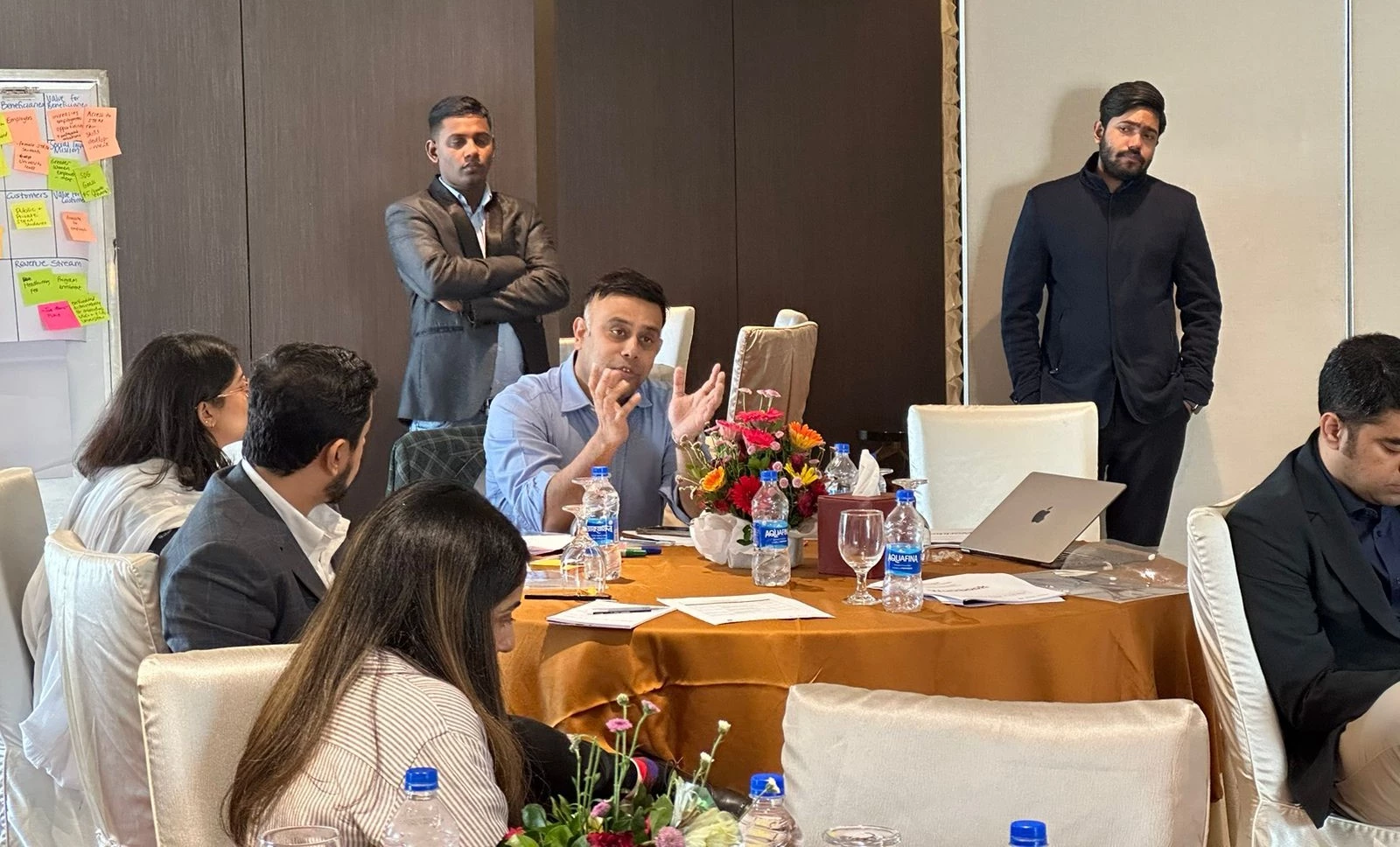
The final session focused on addressing skill gaps among STEM graduates, defining strategies to enhance employability skills, and outlining plans to improve placement rates in STEM roles. Throughout the sessions, there was a consistent consideration of key performance indicators (KPIs) beyond those initially proposed in the project proposal. The need for outcome-level indicators, such as the additional delta of placement, quality of Memoranda of Understanding (MoUs) between employers and universities, and the follow-through of activities based on agreements, was emphasized to ensure the program’s effectiveness.
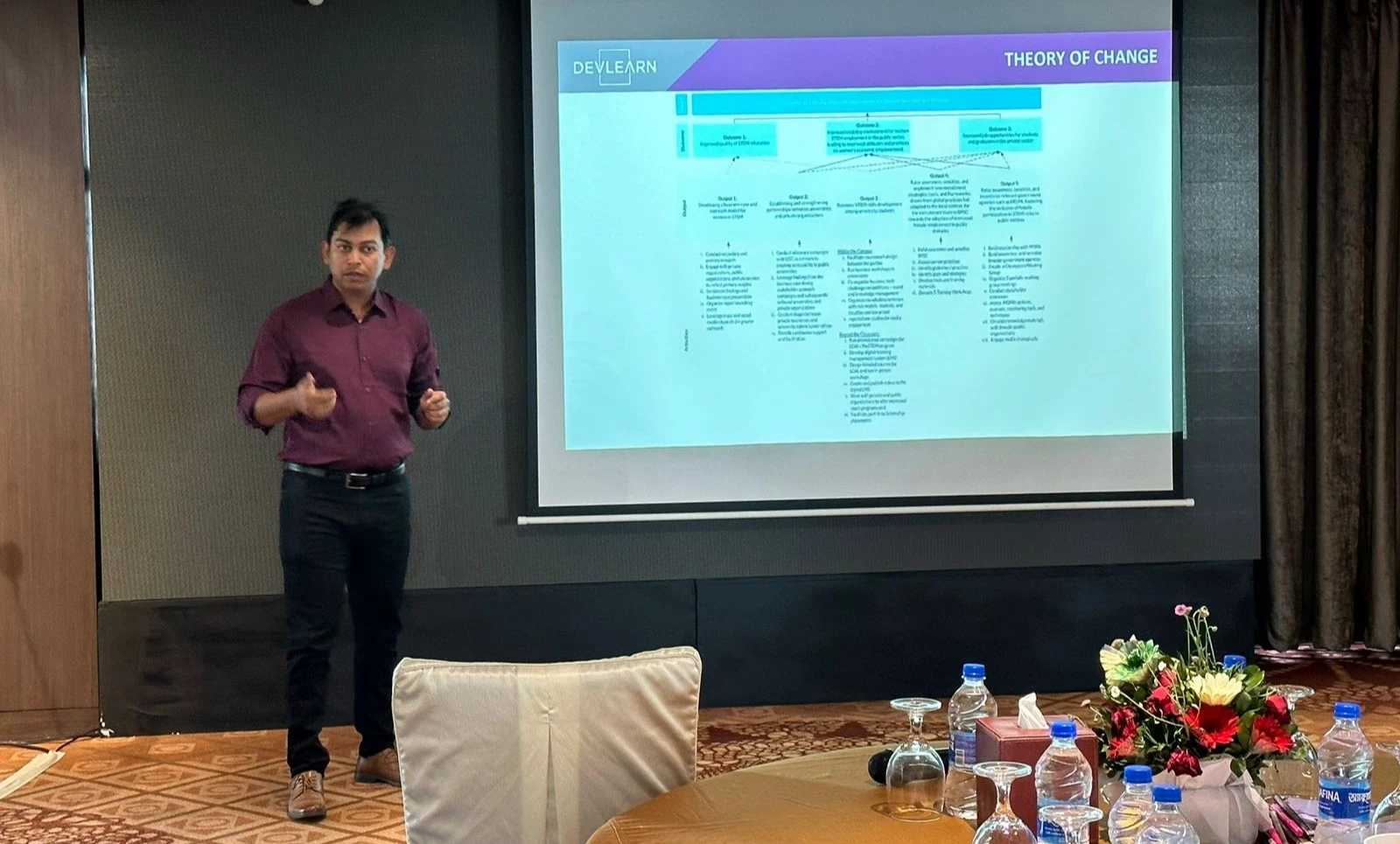
The second day commenced with an insightful session on Monitoring and Evaluation Practices by DevLearn, setting the stage for further exploration of Outputs 4 and 5. These outputs delved into the Advocacy Planning Framework, emphasizing collaboration with government institutions and policy advocacy. Discussions revolved around refining existing policies to refine them for enhanced gender inclusivity, increasing awareness of quotas, integrating AI skills into education, and advocating for inclusive STEM policies. Additionally, several collaborative suggestions emerged, including increasing awareness of quotas, integrating AI skills into education for female graduates, and advocating for inclusive STEM policies, extending beyond the limited scope of the initially proposed ideas. Furthermore, addressing social and cultural barriers and ensuring location accessibility were proposed to enhance female recruitment.
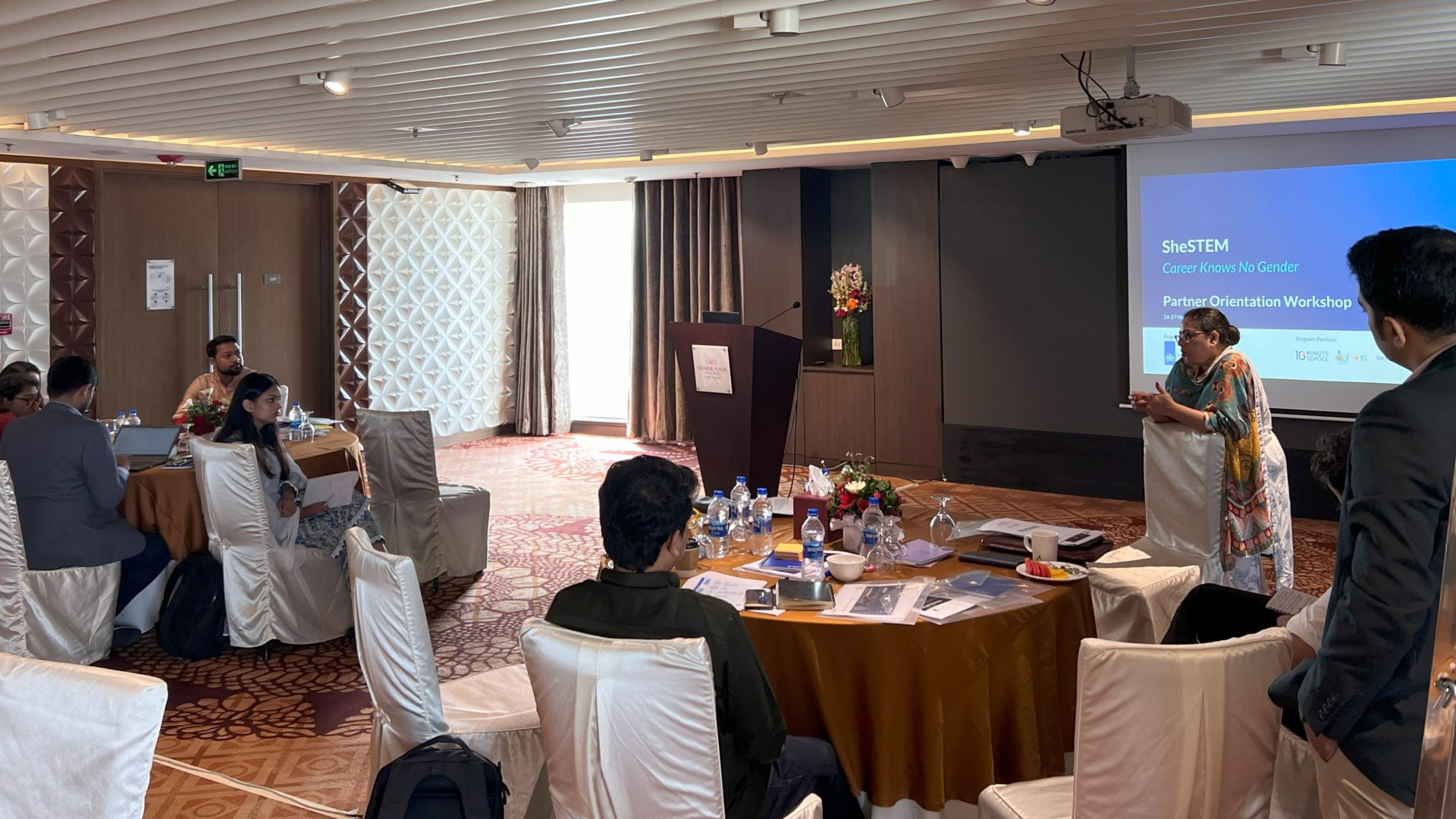
Following the sessions, representatives from The Embassy of the Kingdom of the Netherlands presented their Guidelines and expectations from the impact that the SheSTEM program will bring to Bangladesh’s Female STEM ecosystem.
Overall, valuable insights emerged, emphasizing the need for separate business cases for public and private universities. For private universities, considerations included additional course fees and improved branding, while public universities required a more nuanced approach, considering subsidized fees. Sustainability considerations for government organizations and the proposition of creating a SheSTEM community across multiple universities were pivotal points of discussion.
In conclusion, the workshop laid the foundation for the partners to ensure the success and sustainability of the SheSTEM program in Bangladesh.
Our experts can help you solve your unique challenges